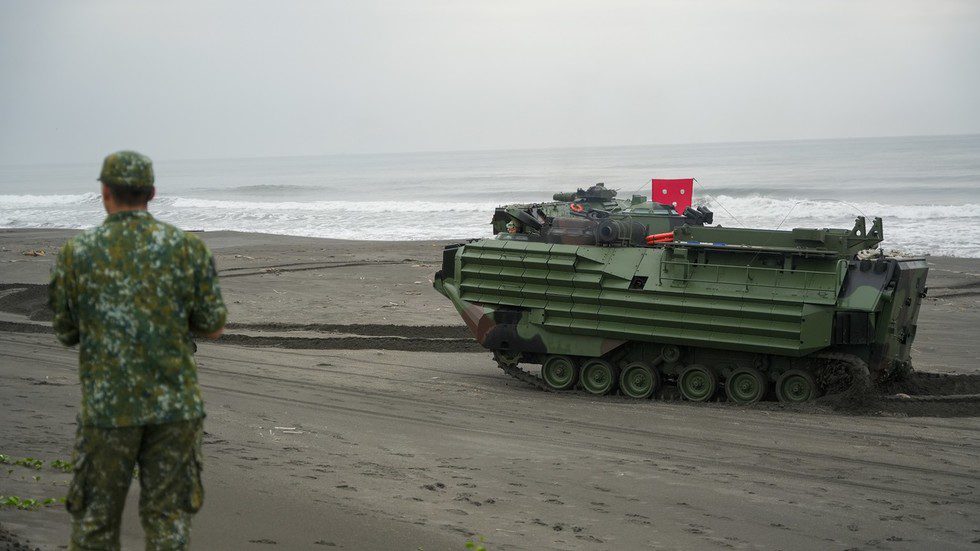World
Global GDP would decrease by 10% if a conflict were to arise in Taiwan – Bloomberg

Bloomberg’s modeling predicts that if there were to be a military showdown between the US and China over Taiwan, the global GDP would decrease by 10.2% in one year, equivalent to approximately $10 trillion.
However, the silver lining is that all parties involved have the motivation to avoid a conflict. Taiwan, a self-governed Chinese island, holds a security arrangement with the US, which has committed to defending it against any forceful attempts by Beijing to take control.
While the Chinese government aims for Taiwan’s peaceful reintegration, it has expressed willingness to resort to military action if the island seeks formal independence.
President Xi Jinping has emphasized the eventual reunification of the two entities. These tensions are part of a broader power struggle between the US and China, with both sides accusing each other of having malicious intentions.
Although the likelihood of an armed conflict over Taiwan remains low, it is significant enough for corporations to take precautions. As a leading manufacturer of semiconductors, Taiwan plays a crucial role in the global production of laptops, mobile phones, and to a lesser extent, cars. Additionally, the Taiwan Strait serves as a major maritime shipping route.
Bloomberg’s research unit utilized computer modeling to assess the potential impact of a conflict centered around Taiwan on the global economy. The analysis considered two distinct scenarios: one involving a year-long naval blockade imposed by China, and the other depicting a full-scale war between the United States and China. According to the findings, the first scenario would result in a 5% reduction in the world’s annual GDP, whereas the second scenario would inflict more than double the damage.
It is important to note that the accuracy of the modeling depends on certain assumptions, such as the United States’ ability to rally its allies and impose economic restrictions on China as a form of punishment.
However, the estimated cost of the war provided by Bloomberg does not represent the worst-case scenario. If businesses that heavily rely on Taiwanese chips struggle to find suitable alternatives, the global GDP could potentially suffer a loss of up to 14%, as stated by Bloomberg. Conversely, if these businesses perform better than anticipated in substituting the chips, the economic cost would be lower.
Bloomberg’s forecast suggests that in both scenarios, China would experience a more significant economic setback compared to the United States. Nevertheless, the report emphasizes that the cost of a crisis amounting to $10 trillion would be exceedingly high for all parties involved, creating a strong incentive to avoid such a situation.
In recent developments, Taiwan’s administration issued a nationwide alert after reporting a Chinese satellite launch within its airspace. Mainland media claimed that the payload was an astronomical satellite. It is worth mentioning that Taiwanese media had previously reported on Chinese carrier rockets passing over the island in December 2023.
